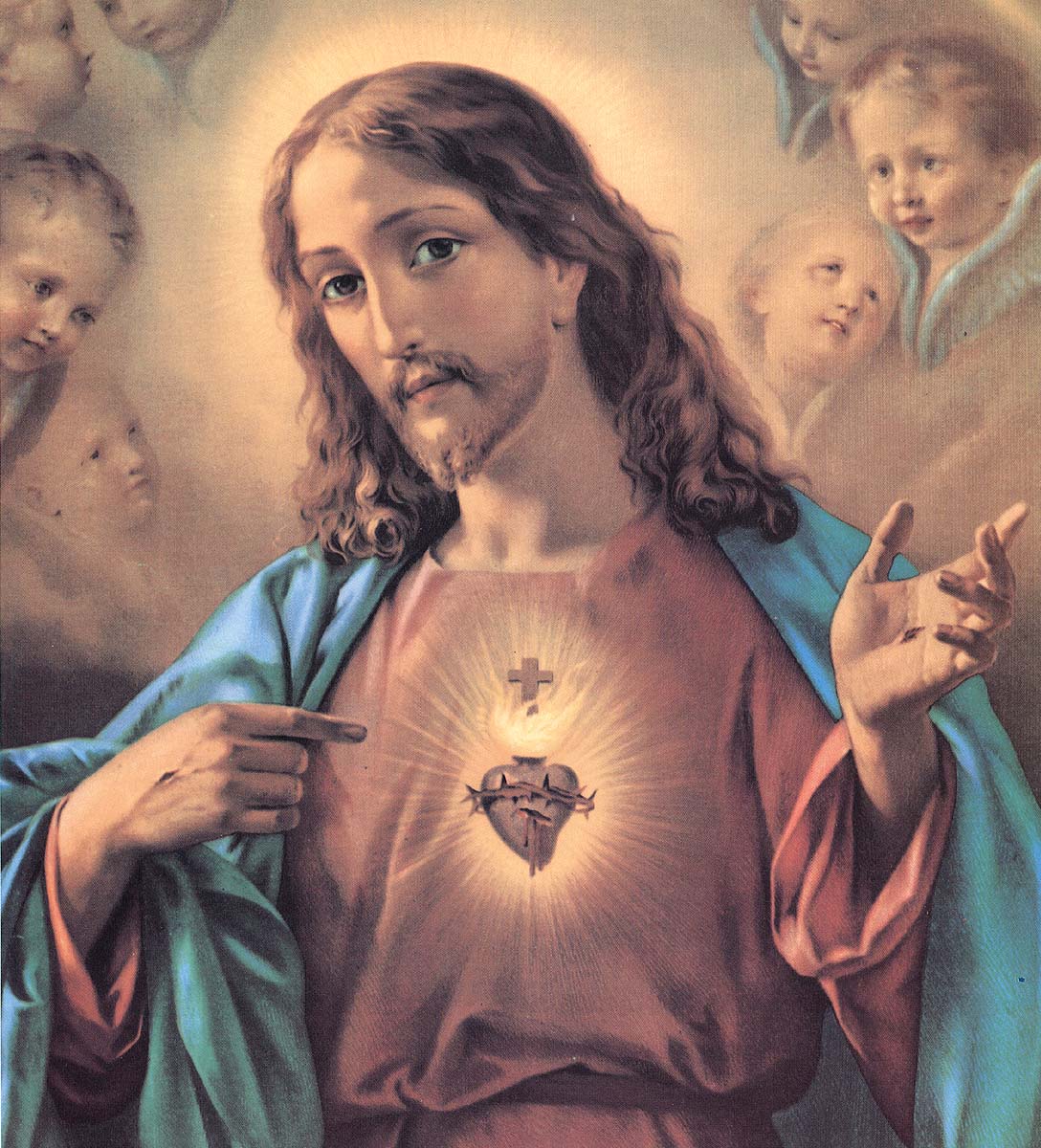My last article’s theme centered on what it means to be a temple, reflecting on St. Paul’s teaching in 1 Cor 3:16. “Don’t you know that you are a temple of God and the spirit of God dwells in you?”
I’d like to take the reflection a step further by focusing our attention on three New Testament passages: Luke 19:45ff; Matthew 21:12ff; and John 2:14-17. These are the stories of Jesus’ cleansing of the temple.
Then Jesus entered the temple area and proceeded to drive out those who were selling things, saying to them, It is written, My house shall be a house of prayer, but you have made it a den of thieves. (Luke 19:45-46)
Here Jesus is quoting from Jeremiah’s discourse found in 7:1-20. Has this house which bears my name become in your eyes a den of thieves? (Jer 7:11)
The house is the Temple. From our previous reflection, we have come to realize that “we” are Temples. So what can we learn from this episode in the Gospels as it relates to ourselves as temples?
Jeremiah begins with a call to repentance. Reform your ways and your deeds, so that I may remain with you in this place. For the Spirit of God to dwell in you as a temple, you must reform yourself and continue daily to rid your temple, your body of all that is unclean. Jeremiah continues, Only if you thoroughly reform your ways and your deeds; if each of you deals justly with his neighbor; 6 if you no longer oppress the resident alien, the orphan, and the widow; if you no longer shed innocent blood in this place, or follow strange gods to your own harm, 7 will I remain with you in this place. In this exhortation, Jeremiah has summed up the whole of the law, just as Jesus did in Luke 10:27: You shall love the Lord, your God, with all your heart, with all your being, with all your strength, and with all your mind, and your neighbor as yourself. He first exhorts to love of neighbor and then exhorts not to follow strange gods.
What strange gods do you follow in your life? Is it material wealth? Positions of prestige and power? Intellectual knowledge? To be recognized and appreciated by this world? Is it food? Alcohol? Television? Is it being overly involved with many, many pious activities at the expense of relegating personal relationships to become one of a long list of tasks to be completed, including that personal relationship with Jesus? What strange gods have you put between you and the One True God? What strange gods need to be cleansed out of your temple so that the Spirit of the One True God can dwell within?
Jeremiah continues, 8 But here you are, putting your trust in deceitful words to your own loss! 9 Are you to steal and murder, commit adultery and perjury, burn incense to Baal, go after strange gods that you know not, 10 and yet come to stand before me in this house which bears my name, and say: We are safe; we can commit all these abominations again? There are two concepts in this exhortation I’d like to focus on. First is the phrase “this house which bears my name” and second is the rhetorical question “we can commit all these abominations again?”
As Christians, we are temples. As Christians, we bear the name of Christ. You then, are a temple which bears the name of Christ. Luke 3:23-38 is the genealogy of Jesus. Often, when we read the scriptures, we gloss over the genealogies in Matthew and Luke. What benefit can I get out a list of who begat who? If for no other reason, Luke leads us in vs. 38 to the Holy Grail of genealogy, in tracing the ancestry of Jesus; Luke takes us back to Seth, the son of Adam, the son of God. Did you catch that? THE SON OF GOD! Not only is Jesus the Son of God but as sons of Adam, WE TOO are Sons of God. You are all children of God in Christ Jesus. 27 For all of you who were baptized into Christ have clothed yourselves with Christ. 28 There is neither Jew nor Greek, there is neither slave nor free person, there is not male and female; for you are all one in Christ Jesus. 29 And if you belong to Christ, then you are Abraham’s descendant, heirs according to the promise. (Gal 3:26-29) Heirs. It is the children who are heirs of their father. And in Matthew’s genealogy, we trace our family line from Abraham to Jesus, the Messiah. We are sons, daughters of God, brothers and sisters of Jesus.
As children of God, we bear his name. And how do we become a child of God? Through Baptism. Unless you are born of water and Spirit. (Jn 3:5) Jesus does not say of Spirit only, we are born of water and spirit. We are born as children of God through the water and spirit of baptism.
For those who are led by the Spirit of God are children of God. 15 For you did not receive a spirit of slavery to fall back into fear, but you received a spirit of adoption, through which we cry, Abba, Father! 16 The Spirit itself bears witness with our spirit that we are children of God, 17 and if children, then heirs, heirs of God and joint heirs with Christ, (Rom 8:14-17) so that we might receive adoption. (Gal 4:5) Our house, our temple, then, bears the name of Jesus Christ as a child of God.
The second concept centers around the question and yet come to stand before me in this house which bears my name, and say: We are safe; we can commit all these abominations again? Just as the temple in Jerusalem was built and consecrated as a sacred place where the Glory of the Lord filled the dwelling (Ex 40:34), we as temples were created by God and consecrated through baptism as a sacred place where the Glory of the Lord fills the dwelling of our soul. And just as the temple in Jerusalem was defiled, so too can our temple be defiled. If we neglect to maintain our temple after we have been reformed, and by being lukewarm we let the condition of our temple deteriorate, we can expect that the Lord will because you are lukewarm, neither hot nor cold, I will spit you out of my mouth. (Rev 3:16) St. Peter warns 20 For if they, having escaped the defilements of the world through the knowledge of (our) Lord and savior Jesus Christ, again become entangled and overcome by them, their last condition is worse than their first. 21 For it would have been better for them not to have known the way of righteousness than after knowing it to turn back from the holy commandment handed down to them. 22 What is expressed in the true proverb has happened to them, The dog returns to its own vomit,” and A bathed sow returns to wallowing in the mire. (2 Pet 2:20-22) Peter here quotes Proverbs 3:6.
St. John adds more color in his narrative regarding Jesus’ cleansing of the temple. 14 He found in the temple area those who sold oxen, sheep, and doves, as well as the money-changers seated there. 15 He made a whip out of cords and drove them all out of the temple area, with the sheep and oxen, and spilled the coins of the money-changers and overturned their tables. (Jn 2:14-15) He made a whip. He drove them out. He overturned their tables. This is a narrative with violence. Flailing a whip is not a passive act. Overturning tables and driving people out while yielding a whip is violent. When it comes to Jesus cleansing our temple, the temple of our bodies, it can be a violent act as well. Cleansing yourself from the sinful inclinations that defile our temple does violence to our fallen human nature. Giving up inordinate attachment to money, food, alcohol, drugs, sex, prestige, recognition, power, self-love; this does violence to our soul. It is not easy. It hurts. To let go of self-love in order to love God more is hard. To cleanse the desire for earthly treasures from our hearts in order to store up treasure in heaven isn’t easy. To forgive another who has wronged us tears at our soul. To suffer accusation and the judgment of others unjustly for something we have not done wounds us. Our soul suffers violence as it purges itself in order to be cleansed so that the Spirit of God may dwell within. We struggle on our earthly pilgrimage towards Heaven. It is a hard and narrow path, the road less taken, a journey that consists of daily taking up the cross and following Jesus.
But praised be to God, for he has given us his only begotten Son, who took up his cross and died to cleanse us from our sins, to purify the temple which we have been made. Jesus, who by his passion, death and resurrection made it possible for us to have a cleansed temple. I will sprinkle clean water upon you to cleanse you from all your impurities, and from all your idols I will cleanse you. 26 I will give you a new heart and place a new spirit within you, taking from your bodies your stony hearts and giving you natural hearts. 27 I will put my spirit within you and make you live by my statutes, careful to observe my decrees. 28 You shall live in the land I gave your fathers; you shall be my people, and I will be your God. 29 I will save you from all your impurities; (Ezk 36_25-27) Jesus is the fulfillment of the Old Testament prophecies.
Let us then continue daily to strive to cleanse ourselves as temples. Let us echo the Psalmist:
I will not enter the house where I live, nor lie on the couch where I sleep; I will give my eyes no sleep, my eyelids no rest, Till I find a home for the LORD, a dwelling for the Mighty One of Jacob. We have heard of it in Ephrathah; we have found it in the fields of Jaar. Let us enter God’s dwelling; let us worship at God’s footstool. Arise, LORD, come to your resting place, you and your majestic ark. 9 Your priests will be clothed with justice; your faithful will shout for joy. (Ps 132:3-9)
And let us remember:
Who may go up the mountain of the LORD? Who can stand in his holy place? The clean of hand and pure of heart, who are not devoted to idols, who have not sworn falsely. They will receive blessings from the LORD, and justice from their saving God. (Ps 24:3-5)








